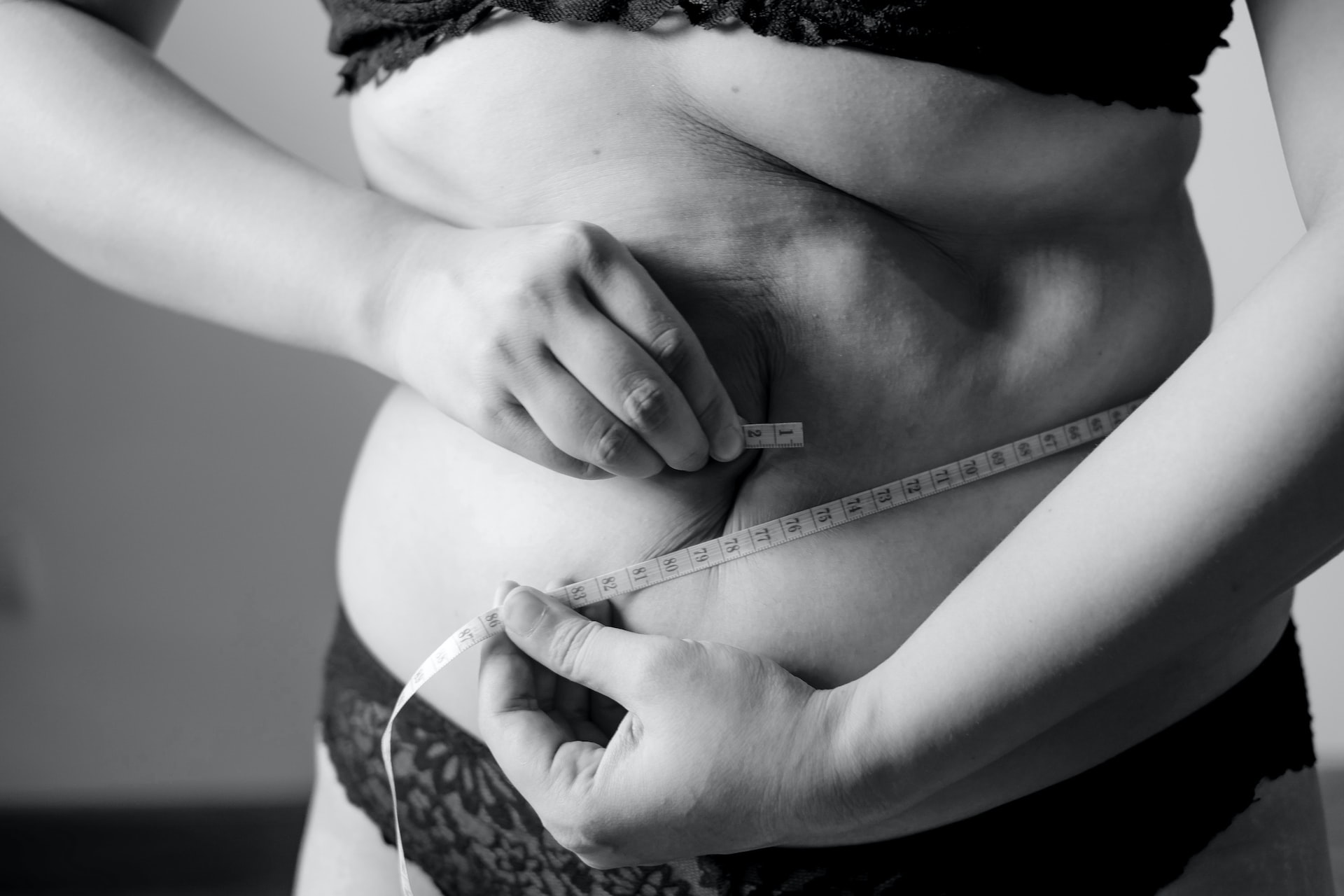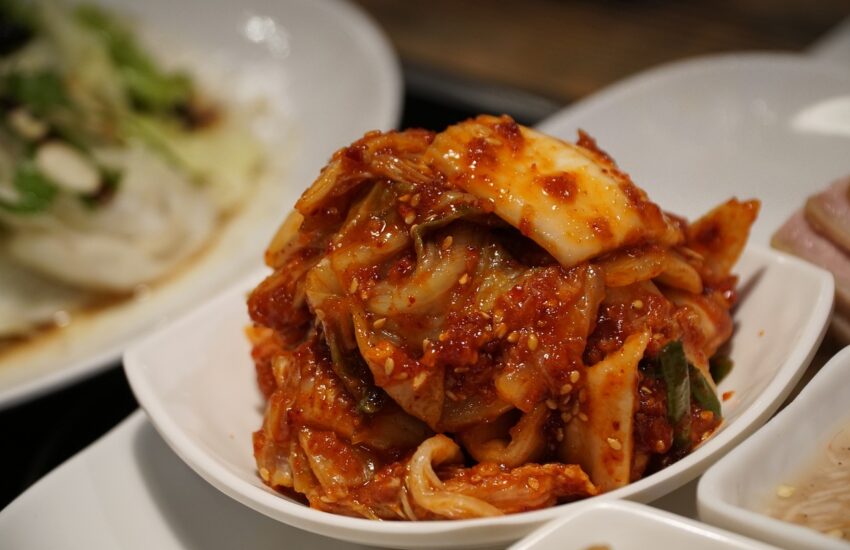Losing Excess Body Fat is Hard, but You’ll Be Shocked When You See How Eating More Fat Can Help
For access to my article series on Fat and Cholesterol click here.
You’re about to learn something shocking.
I’m not sure if I should share this information with you. That’s not because I don’t believe this to be true, I’m just not so sure you’ll believe me when I tell you.
I’ve alluded to this several times in the emails I’ve written before, but I’ve never gone in to great depth about the concept.
So let’s talk about fat.
Sure, we can talk about love handles, spare tires and cankles. But what I’m really concerned about is addressing the myths about fat and also helping you understand fat a bit better.
The Biggest Myth About Fat
“Fat makes you fat.” That’s what everyone thinks.
What happened? How did we get to the point where everyone believes that fat is bad?
Most of this started when dietary guidelines were instituted by the U.S. Government.
You’re familiar with the food pyramid, no doubt. When it became popular was about the same time the myth of “fat makes you fat” came into prevalence.
What scientists and many doctors were beginning to notice was an increase in weight gain nationwide.
And they attributed ballooning waistlines with fat.
What they didn’t realize was the change in the diet was really to blame for weight gain, not fat.
You see, fat contains calories, just like protein and carbohydrates contain calories.
What’s interesting about fat is it contains more calories per gram than any other food type.
1 gram of fat has 9 calories. 1 gram of both carbs and protein have only 4 calories respectively.
Since scientists knew this, they warned that you shouldn’t eat fat because it contains more calories. They figured if you ate fat you were bound to put on weight.
So, while on the surface it might look like fat makes you fatter, the opposite is true.
That’s because when healthy fats are consumed, they trigger your body to believe it’s full, faster.
It’s not that fat is tricking your body per se. It’s just doing its job.
Your body was designed to burn on fat as a primary fuel source. Carbs were never meant to be where we get all of our energy from.
What your body does is when it gets enough fuel in the form of fat, it decides it doesn’t need to ingest any more calories. This, in turn, helps you stay at your ideal weight.
On the other hand, carbs don’t have the same kind of effect on hunger.
That means you can scarf down hundreds (if not thousands) of grams of carbs before you’re actually full.
Even worse is that many of the new, synthetic carbs we have; carbs like refined sugars, wheat, etc. all have the opposite effect as fat.
While fat makes use of your brain to shut off your hunger pangs, these carbs actually tell your body you’re not full yet. And so you eat more and more and more.
If you need a practical example, think of it like this.
If you were to cook up some whole eggs in grass-fed butter and you were pretty darn hungry, how many eggs could you eat?
Let’s just say that number is 3. You’re able to eat 3 eggs before you feel full. It’s a decent amount of calories, around 300-350 or so.
Now, imagine what would happen if you were to have a whole pizza in front of you with that same appetite. You’d probably be able to eat quite a bit more. In the neighborhood of 500-800 calories.
And an unintended consequence of pounding a few slices of pizza is, shortly after you eat, you’d be hungry again. So you’d eat more, later.
Not to mention, you probably washed every single delicious bite down with a soda filled with sugar at around 200-300 calories.
Now, here’s what happens.
When you eat the pizza, your body decides that most of the calories you just consumed need to be stored for later.
So, it takes each gram of carbs, at 4 calories a piece, and pads it on your thighs…on your back…around your belly, and wherever else it can until it needs it for later.
Since you had a ton of carbs, you now have built up a fat reserve your body wants you to use for later.
On the other hand, the eggs, which are pretty much all fat, would be used immediately as energy.
And since fat doesn’t cause your blood sugar to spike like carbs do, you wouldn’t be nearly as hungry as you would be after eating a pizza.
When you use fat as your primary energy source it’s called ketosis.
And ketosis is one of the best ways to keep your body running in such a way that fat melts right off of you.
Here’s More on How Eating Fat Will Help You Lose Weight
The simple way to understand how fat works is to understand its molecular structure.
When the body breaks down the fat, ketones are formed.
And ketones are what are then used to “charge” your body.
The truth is, as far as energy needs are concerned, your muscles (including your heart) are much better adapted to use ketones for energy.
Your brain prefers glucose.
Glucose is a sugar, the same kind of sugar transported in the blood.
But, if you eat primarily fat, it means your glucose levels will be low. Well, your body can handle that perfectly fine.
When your blood sugar (glucose) is low, your liver produces a ketone-like substance called beta-hydroxybutyrate (or beta-hydroxybutyric acid).
And this molecular compound is able to power your brain with supreme efficiency.
In truth, glucose shouldn’t be used as a steady energy source for the brain.
In fact, it should be stored as glycogen for only the most desperate of times when it helps you with your fight-or-flight response.
And that’s really fat 101.
The problem with most American diets is there’s an unhealthy balance of fat and carbs.
Since people ingest carbs and fat at the same time, both the fat and the leftover carbs are all stored as fat reserves.
So that pint of Ben & Jerry’s is going straight to your butt.
The relationship between carbohydrates and your blood sugar is it sends your insulin levels through the roof. Carbs are used for quick, cheap energy and then your insulin levels crash, making you hungry all over again.
It’s a vicious cycle and not one many people understand.
In reality, if you were to consume a diet that was primarily fat and protein, and very low carb (coming from fruits, veggies, and some starches), you’d never see massive blood sugar spikes.
And, you’d never have to worry about being a bit pudgier than you’d like.
What I’m going to be doing in the next email is talking about some of the kinds of fats you should be eating.
A lot of fats you believe are horrible for you really aren’t.
And likewise, “heart healthy” fats you keep hearing about are actually extremely damaging to your health.
The surprising thing here is that for years, doctors and scientists have been telling you one kind of fat in particular is the worst thing you can eat.
And I’m about to prove to you it isn’t.
For access to my series on Fat and Cholesterol click here.
In the meantime…
Talk soon,
Dr. Wiggy
www.HealthAsItOughtToBe.com


